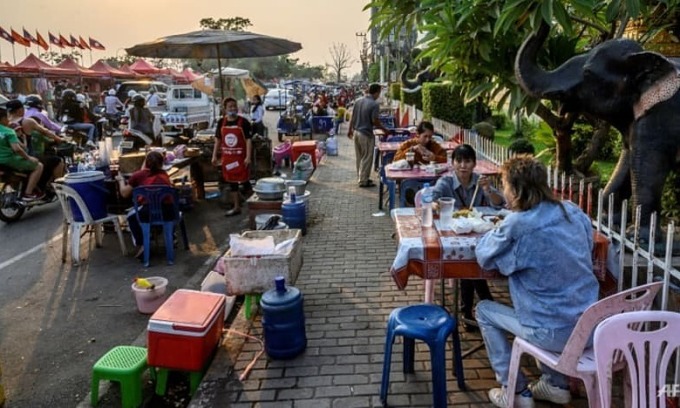7 etiquettes to know when traveling in Thailand
It's easy to make a faux pas in Southeast Asia. Traveling to Thailand? Read our etiquette tips. It's useful for you ...
1. Don't drop or stand on currency
Ft are considered to be the lowest and least clean part of the body, so avoid directing your feet at anyone: don't cross your hip and legs, sit cross-legged or put your feet up. That is also rude to drop or stand on currency, as it could be considered disrespectful towards the royal family (Thailand's reigning monarch is published on the Thai Baht).
2. Never touch anyone's head
Someone's head is considered almost holy in Thailand, so even giving someone a wally on the head or touching their head of hair could be frowned upon. Should you be volunteering or working with young children, be especially wary - really second nature for many westerners to ruffle youngsters' hair. Thai masseurs may ask permission to rub your face first, so carry in mind that they may be asking as an indication of respect.
 |
| The wai is the traditional form of Thai greeting (Shutterstock) |
3. Always return a 'wai'
The wai is a common and polite greetings which involves bowing your head and keeping the hands in a praying motion. Everyone you meet will greet you in this way, so always come back the gesture and giggle as you do so. If you are welcome a monk then you must bend from the waist with your brain bowed and your hands together.
4. Respect the monks
Many temples carry sessions where you can meet and talk to monks, to learn about Buddhism and help them improve their English. No longer be over-familiar or ask personal questions when first meeting them. If you are female, don't touch them or even clean past them: it is strictly forbidden for monks to have any physical connection with a woman.
In the event that you need to complete something to a monk, said down in entrance of them rather than handing it over immediately. They will sometimes be nervous when speaking to tourists, so have patience. A lot of monks are in training and will be young boys, but you should still reserve the same high level of value for them.
 |
| A monk teaches young novice monks, Thailand (Shutterstock) |
5. Cover up in temples
It is pretty likely that you will stumble after an incredibly beautiful temple while wandering around the roads, but be sure you are respectful and cover your shoulders and chest before entering. Often keep a shawl or some long-sleeved clothing in your bag as you could be refused entry or cause offense it you not necessarily properly covered.
6. Don't point or beckon
Both equally is visible as rude or even sexually suggestive. In the event that you do want to motion to anyone to join you, put your odds out with your palm facing downwards and wave your fingers towards yourself. Also, tilt your head upwards to point with your chin to avoid triggering offence. This kind of also applies to directed at objects or properties, but especially avoid aiming at temples. If you forget, simply wai as an apology.
7. Be prepared to pay more than the locals
Several galleries, museums and wats or temples charge different prices for Thai nationals and travelers, and both prices not necessarily always listed on the website or in guidebooks. It is sometimes possible to avoid this higher tourist payment if anyone asks in advance, publication with a huge group or go at off-peak times. Don't be surprised if they flatly refuse you, but it is always worth asking.


will definitely use this guide for the future visit
Trả lờiXóa